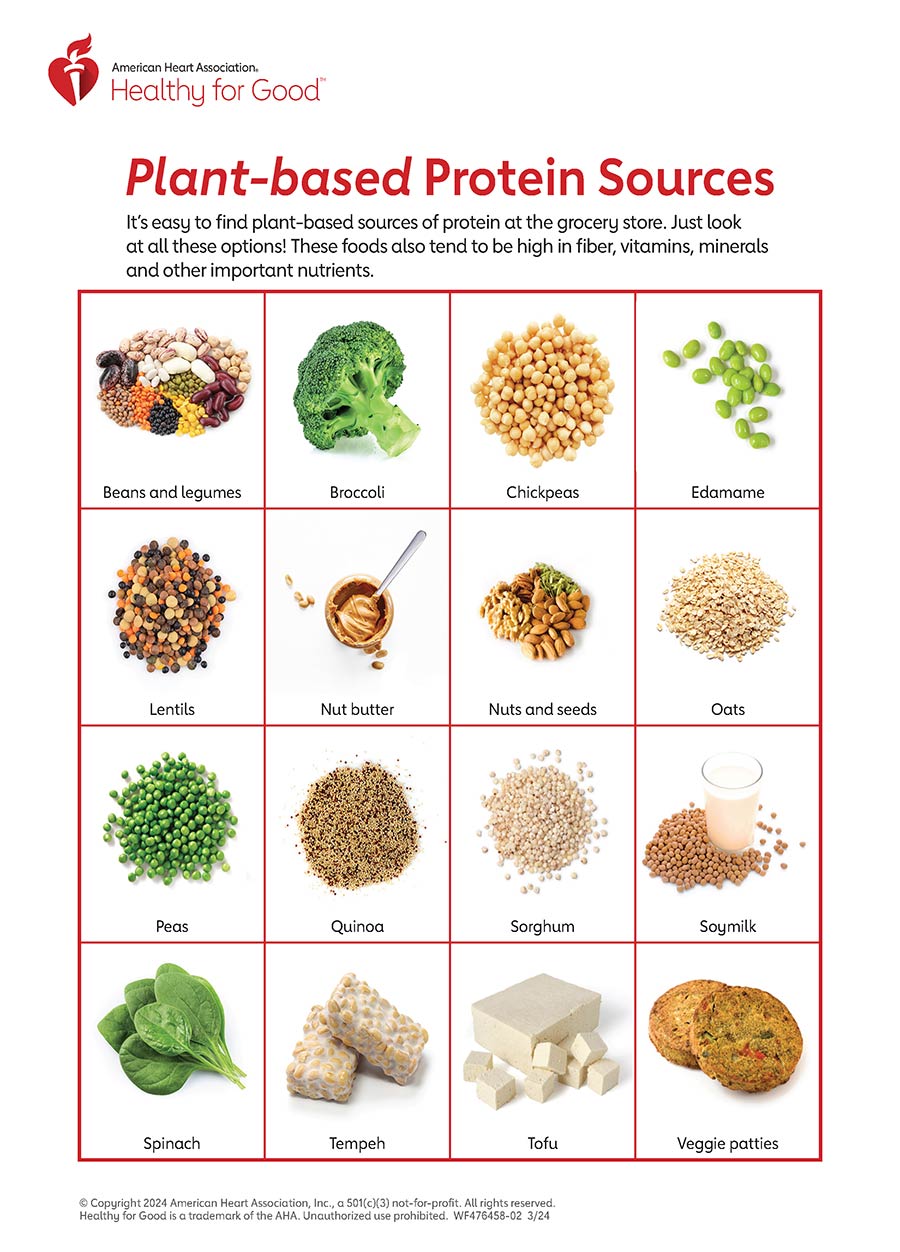All Regarding Healthy And Balanced Food: Benefits of Embracing Plant Based Alternatives
The discussion surrounding plant-based diets has actually gained substantial focus over the last few years. Several individuals are checking out the possible health benefits, dietary benefits, and environmental influences linked with these nutritional options. As individuals become much more knowledgeable about their food's impact on health and sustainability, concerns arise about the practicalities of embracing such a way of life. What details adjustments can one expect, and just how might these options improve not just personal health yet additionally the planet's future?
Comprehending Plant-Based Diet Plans
Although many individuals link plant-based diet plans generally with vegetarianism or veganism, these diets can encompass a vast array of eating patterns that prioritize whole, minimally processed plant foods. Such diet plans frequently include fruits, vegetables, entire grains, legumes, nuts, and seeds, while limiting or removing animal products. This flexibility allows individuals to customize their nutritional choices according to personal choices and nutritional requirements. Some might take on a largely plant-based diet while still occasionally consuming meat or dairy, frequently described as a flexitarian method. The emphasis remains on incorporating more plant foods, which can lead to a varied range of flavors and dishes. Understanding these various interpretations of plant-based eating is important for valuing its accessibility and charm in contemporary food society.
Health Benefits of Plant-Based Foods
The health and wellness advantages of plant-based foods are significant, offering a nutrient thickness benefit that supports general well-being. Research study suggests that these foods can boost heart health and play an important role in reliable weight management. By including extra plant-based alternatives, individuals might enhance their nutritional choices and advertise lasting wellness.
Nutrient Thickness Advantage
Nutrient thickness plays a vital role in the health benefits of plant-based foods, making them a compelling option for those looking for a well balanced diet. Plant-based foods, such as fruits, vegetables, beans, nuts, and entire grains, are typically abundant in vital vitamins, minerals, and antioxidants while being reduced in calories. This high nutrient density permits people to consume fewer calories while still satisfying their nutritional needs. In addition, these foods are packed with nutritional fiber, promoting gastrointestinal health and helping in weight monitoring. By including nutrient-dense plant-based options, consumers can boost their overall health and wellness, support their immune systems, and reduce the risk of chronic diseases. Ultimately, the nutrient density of plant-based foods underscores their value in a health-conscious way of living.
Heart Health And Wellness Improvement

Weight Monitoring Assistance
In addition to promoting heart health and wellness, a plant-based diet plan can substantially help in weight monitoring. This dietary technique emphasizes whole foods such as fruits, veggies, legumes, nuts, and whole grains, which are typically lower in calories and greater in fiber compared to animal-based products. The high fiber material helps enhance satiety, minimizing total calorie consumption. Additionally, plant-based diet plans are commonly abundant in crucial nutrients while reduced in undesirable fats, making it less complicated to preserve a healthy and balanced weight. BBQ Sauces. Research study indicates that people that adopt a plant-based lifestyle often tend to have reduced body mass indexes (BMIs) and experience even more effective weight-loss compared to those who eat meat-heavy diet regimens. Welcoming plant-based options is a strategic selection for effective weight administration.
Nutritional Value of Plant-Based Components
Plant-based active ingredients are abundant in important nutrients, supplying a varied array of vitamins, minerals, and antioxidants that add to total health and wellness. A comparison of healthy protein sources discloses that while pet products are typically watched as superior, many plant-based choices provide adequate protein and various other beneficial substances. Recognizing the dietary worth of these active ingredients can aid individuals make informed dietary choices.
Important Nutrients in Plants
Nutrient-rich ingredients located in plants offer a varied selection of crucial minerals and vitamins that add considerably to general health and wellness. These ingredients are rich in vitamins A, C, and K, which sustain immune function, vision, and blood clotting, specifically. Additionally, plants offer vital minerals such as potassium, magnesium, and calcium, crucial for heart wellness, muscle function, and bone toughness. The existence of fiber in plant-based foods aids food digestion and promotes a healthy intestine microbiome. Anti-oxidants, found perfectly in fruits and vegetables, assistance combat oxidative stress and anxiety and minimize swelling. Additionally, numerous plant foods are reduced in calories yet high in nutrients, making them an exceptional option for those looking for to preserve a healthy weight while making sure suitable nutrient consumption.
Comparing Healthy Protein Resources
Protein sources vary considerably in their nutritional accounts, with plant-based components using special advantages. Unlike animal proteins, which often contain hydrogenated fats and cholesterol, plant healthy proteins often tend to be reduced in these undesirable components. Legumes, nuts, seeds, and entire grains are abundant in necessary amino acids, fiber, vitamins, and minerals. Lentils provide high healthy protein material alongside substantial iron and folate, while quinoa is a total healthy next page protein, providing all nine crucial amino acids. Furthermore, plant-based proteins are frequently gone along with by anti-oxidants and phytochemicals that sustain overall health. The shift to plant-based healthy protein sources not just go to my blog improves nutritional consumption however also lines up with sustainable dietary practices, decreasing environmental influence and advertising lasting health and wellness advantages.
Environmental Influence of Plant-Based Consuming
As recognition of climate adjustment grows, lots of individuals are discovering sustainable nutritional selections that can considerably decrease their environmental footprint. Plant-based eating has actually become a significant factor to reducing greenhouse gas discharges, which are largely connected with animals production. The farming of fruits, grains, legumes, and vegetables typically needs less resources, such as water and land, compared to animal farming. In addition, plant-based diet regimens can result in decreased deforestation, as less land is required for grazing animals or growing animal feed. By moving in the direction of plant-based choices, consumers can sustain biodiversity and advertise much healthier communities. Generally, welcoming plant-based eating not only benefits personal health and wellness but additionally stands for a vital step toward ecological sustainability and preservation initiatives.
Conquering Common Misconceptions
While many people recognize the benefits of a plant-based diet, several misunderstandings frequently prevent them from completely accepting this way of life. A typical idea is that plant-based diets lack sufficient healthy protein; nonetheless, countless plant resources, such as beans, nuts, and tofu, supply adequate protein. In addition, some think that this diet regimen is costly, when actually, staples like beans, rice, and seasonal vegetables can be fairly budget-friendly. One more mistaken belief is that plant-based eating is overly limiting, whereas it really provides a diverse selection of tastes and foods. Finally, numerous worry that a plant-based diet regimen may cause shortages, yet with proper preparation, people can acquire all needed nutrients, including minerals and vitamins, while enjoying a wide range of tasty meals.
Tips for Transitioning to a Plant-Based Lifestyle
Making the change to a plant-based lifestyle can be an improving experience, though it typically requires some support to browse the preliminary changes. First, people are motivated to begin gradually, integrating even more fruits, vegetables, vegetables, and entire grains into their meals while decreasing meat and milk consumption. Dish preparation is necessary; preparing a weekly menu can assist reduce the adjustment and avoid final harmful selections. Exploring new recipes and cooking approaches can also preserve and improve the experience exhilaration concerning plant-based consuming. Furthermore, signing up with assistance teams or communities can provide motivation and share important ideas. Staying notified regarding nutrition guarantees balanced meals, avoiding deficiencies while fostering a healthy, rewarding plant-based way of life.

Delicious Plant-Based Meal Concepts
Exploring tasty plant-based meal ideas can inspire people to embrace a much more nutritious diet. One popular choice is a hearty quinoa salad, including cherry tomatoes, cucumber, and a zesty lemon-tahini clothing. One more favorite is a savory lentil stew, packed with carrots, celery, and fragrant natural herbs, perfect for a comforting dinner. For morning meal, over night oats made with almond milk, chia seeds, and covered with fresh berries give a nourishing start to the day. Furthermore, a dynamic veggie stir-fry with tofu and a variety of colorful veggies can be a quick yet pleasing dish. Creamy avocado salute on whole-grain bread, sprayed with spices and seeds, offers an easy yet delicious treat. These dishes display the range and splendor of plant-based eating.

Frequently Asked Concerns
Can a Plant-Based Diet Offer Sufficient Protein?
The concern of whether a plant-based diet plan can provide sufficient healthy protein is common. Countless resources, including vegetables, nuts, seeds, and entire grains, can meet healthy protein requires properly, supporting a well balanced and nutritious diet plan for people.
Are Plant-Based Diets Ideal for Children?
The viability of plant-based diets for children depends upon careful preparation. Ample nutrients need to be guaranteed, including minerals, vitamins, and proteins. With proper guidance, such diets can support healthy development and growth in children.
Exactly how Do I Eat in restaurants on a Plant-Based Diet?
Dining out on a plant-based diet regimen entails looking for dining establishments with diverse food selections, asking for alterations, and discovering vegan-friendly alternatives. Preparation ahead and connecting nutritional preferences can improve the eating experience while keeping dietary options.
What Prevail Irritants in Plant-Based Foods?
Usual allergens in plant-based foods consist of soy, gluten, nuts, and seeds - BBQ Sauces. Individuals following a plant-based diet should know these allergens and read tags very carefully to avoid negative reactions and assure risk-free intake
Can Plant-Based Diets Aid With Weight Management?
Research study indicates that embracing a plant-based diet plan may facilitate weight management because of its generally reduced calorie density and greater fiber material. This mix can boost satiety, aiding individuals manage their calorie intake effectively. Lots of people associate plant-based diets mostly with vegetarianism or veganism, these diet regimens can encompass a broad variety of consuming patterns that focus on entire, minimally refined plant foods. Nutrient thickness plays a necessary role in the moved here health benefits of plant-based foods, making them a compelling option for those looking for a well balanced diet regimen. Plant-based diet regimens have actually been revealed to significantly boost heart health, as they usually consist of elements that support cardiovascular feature. In enhancement to promoting heart health, a plant-based diet plan can considerably aid in weight monitoring. An usual belief is that plant-based diet regimens do not have adequate protein; nonetheless, many plant resources, such as vegetables, nuts, and tofu, provide enough healthy protein.